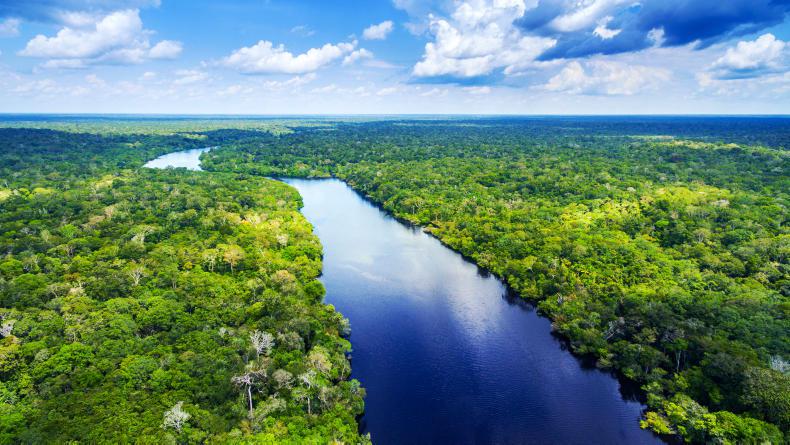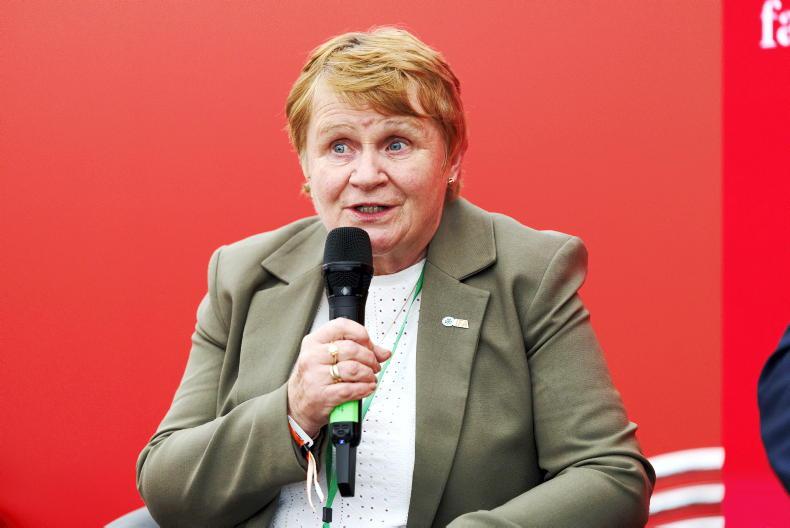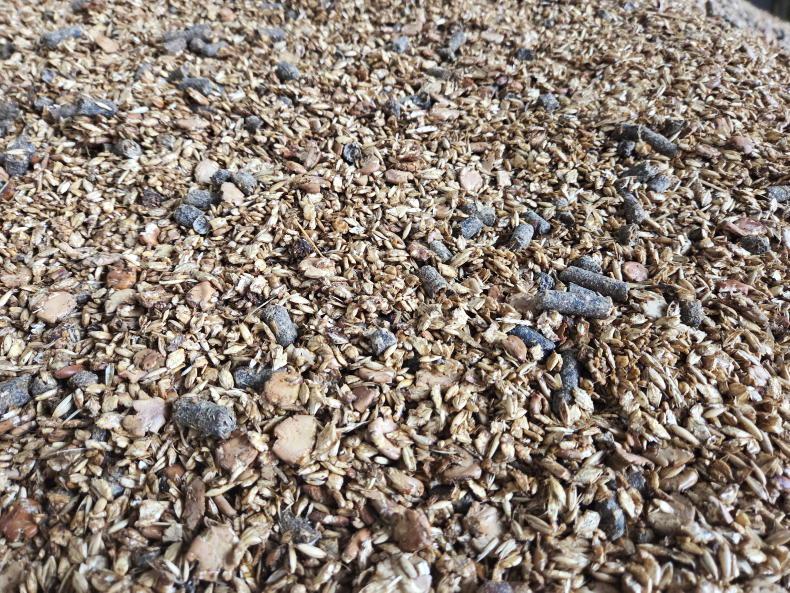The vote by the EU Parliament to oppose the Mercosur trade deal as it currently stands is the latest evidence that support for the deal in Brussels is slipping. This is welcome news for farmers, and it reflects a growing realisation that having a strong focus on sustainability within the EU isn’t compatible with the Mercosur deal in its current form. It also reflects a mood that has been building for some time.
Demanding environmental and climate standards were put in place for farmers in the Farm to Fork strategy
When the Commission started its mandate in December last year, the new president made clear that the objective of this Commission was to put in place a Green Deal that would lead to Europe being the first carbon neutral continent by 2050. Demanding environmental and climate standards were put in place for farmers in the Farm to Fork strategy and it was clear that if trade was the priority for the previous Commission, sustainability was the priority this time.
New trade commissioner
This is also evident from the tone of comments in Brussels and among member state governments on the Mercosur agreement. Last week, the Latvian commissioner, Valdis Dombrovskis, went before the EU Parliament’s trade committee for scrutiny, ahead of the parliament’s vote to approve his nomination.
Commissioner Dombrovskis also doubted member states would ratify if these commitments weren’t demonstrated
MEPs repeatedly raised the issue of deforestation and commitment to the Paris Agreement with the incoming commissioner. He was consistent in his responses, saying that Mercosur countries would have to demonstrate their commitment prior to EU ratification. Commissioner Dombrovskis also doubted member states would ratify if these commitments weren’t demonstrated.
Elsewhere, the environment committee voted to request the Commission to legislate to ban the import of produce that is associated in any way with deforestation to the EU. This suggests that increasingly, trade with the EU comes with conditions.
What was in the deal?
The Mercosur deal had a chapter on the environment and the Amazon rainforest. In an interview with the Irish Farmers Journal immediately after the deal was announced, then agriculture commissioner Phil Hogan said that if “president Bolsonaro followed president Trump out of the Paris climate agreement, this deal fails.” He also said the ongoing deforestation was totally unacceptable and if not reversed, “then the deal is dead” in the week after the agreement was concluded last year.
The agreement has provided for replanting of 12m hectares of forest in the Amazon region and a complete cessation of all illegal deforestation.
Opposition building
Farm organisations across the EU opposed the deal for commercial reasons, as did many agriculture ministers including the then Irish Minister, Michael Creed. However within weeks, opposition was building from an environmental perspective as well, because of the Amazon forest fires. By September last year, the EU committee of the Austrian parliament had voted to require the government oppose the deal as it was agreed, and this was reinforced by a new Austrian coalition government that came into office in January this year.
Wider unease
In recent weeks, reservations have been expressed by a number of leading EU politicians, including the German chancellor Angela Merkel. Germany would be a huge beneficiary of the deal, with elimination of tariffs on car sales to Mercosur countries and the German government had been among the strongest supporters of the agreement. In September, the French prime minister said he couldn’t accept the current deal and this was followed by expressions of opposition at the EU Agriculture and Trade council meetings in September.
Comment
With the Commissioners most associated with the Mercosur deal – including Phil Hogan – no longer involved, there is a feeling that the deal doesn’t have the political champions it had a year ago. Instead, there is a Commission that is particularly focused on sustainability, something that doesn’t sit well with increasing the volume of South American imports. There is a distance for the Mercosur agreement to travel before it secures ratification.
Mercosur trade deal has been agreed, but not ratified.New Commission’s priority is the Green Deal, which aims to make Europe carbon neutral by 2050.Growing concern in EU Parliament and member states on the Mercosur countries policies on deforestation.New trade commissioner commits to further engagement to deliver on deforestation and Paris climate accord before ratification.
The vote by the EU Parliament to oppose the Mercosur trade deal as it currently stands is the latest evidence that support for the deal in Brussels is slipping. This is welcome news for farmers, and it reflects a growing realisation that having a strong focus on sustainability within the EU isn’t compatible with the Mercosur deal in its current form. It also reflects a mood that has been building for some time.
Demanding environmental and climate standards were put in place for farmers in the Farm to Fork strategy
When the Commission started its mandate in December last year, the new president made clear that the objective of this Commission was to put in place a Green Deal that would lead to Europe being the first carbon neutral continent by 2050. Demanding environmental and climate standards were put in place for farmers in the Farm to Fork strategy and it was clear that if trade was the priority for the previous Commission, sustainability was the priority this time.
New trade commissioner
This is also evident from the tone of comments in Brussels and among member state governments on the Mercosur agreement. Last week, the Latvian commissioner, Valdis Dombrovskis, went before the EU Parliament’s trade committee for scrutiny, ahead of the parliament’s vote to approve his nomination.
Commissioner Dombrovskis also doubted member states would ratify if these commitments weren’t demonstrated
MEPs repeatedly raised the issue of deforestation and commitment to the Paris Agreement with the incoming commissioner. He was consistent in his responses, saying that Mercosur countries would have to demonstrate their commitment prior to EU ratification. Commissioner Dombrovskis also doubted member states would ratify if these commitments weren’t demonstrated.
Elsewhere, the environment committee voted to request the Commission to legislate to ban the import of produce that is associated in any way with deforestation to the EU. This suggests that increasingly, trade with the EU comes with conditions.
What was in the deal?
The Mercosur deal had a chapter on the environment and the Amazon rainforest. In an interview with the Irish Farmers Journal immediately after the deal was announced, then agriculture commissioner Phil Hogan said that if “president Bolsonaro followed president Trump out of the Paris climate agreement, this deal fails.” He also said the ongoing deforestation was totally unacceptable and if not reversed, “then the deal is dead” in the week after the agreement was concluded last year.
The agreement has provided for replanting of 12m hectares of forest in the Amazon region and a complete cessation of all illegal deforestation.
Opposition building
Farm organisations across the EU opposed the deal for commercial reasons, as did many agriculture ministers including the then Irish Minister, Michael Creed. However within weeks, opposition was building from an environmental perspective as well, because of the Amazon forest fires. By September last year, the EU committee of the Austrian parliament had voted to require the government oppose the deal as it was agreed, and this was reinforced by a new Austrian coalition government that came into office in January this year.
Wider unease
In recent weeks, reservations have been expressed by a number of leading EU politicians, including the German chancellor Angela Merkel. Germany would be a huge beneficiary of the deal, with elimination of tariffs on car sales to Mercosur countries and the German government had been among the strongest supporters of the agreement. In September, the French prime minister said he couldn’t accept the current deal and this was followed by expressions of opposition at the EU Agriculture and Trade council meetings in September.
Comment
With the Commissioners most associated with the Mercosur deal – including Phil Hogan – no longer involved, there is a feeling that the deal doesn’t have the political champions it had a year ago. Instead, there is a Commission that is particularly focused on sustainability, something that doesn’t sit well with increasing the volume of South American imports. There is a distance for the Mercosur agreement to travel before it secures ratification.
Mercosur trade deal has been agreed, but not ratified.New Commission’s priority is the Green Deal, which aims to make Europe carbon neutral by 2050.Growing concern in EU Parliament and member states on the Mercosur countries policies on deforestation.New trade commissioner commits to further engagement to deliver on deforestation and Paris climate accord before ratification. 









SHARING OPTIONS